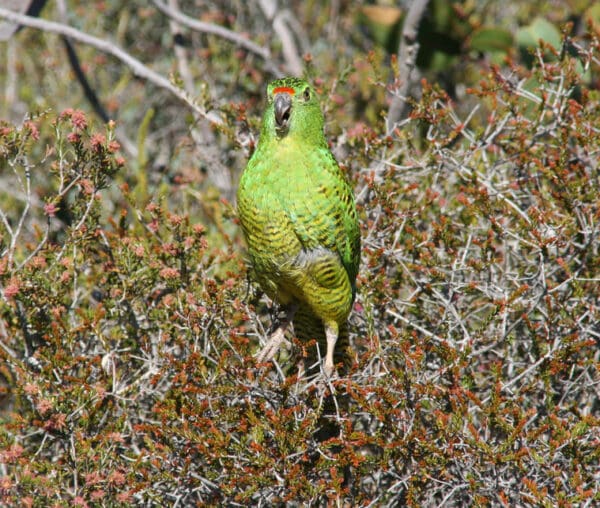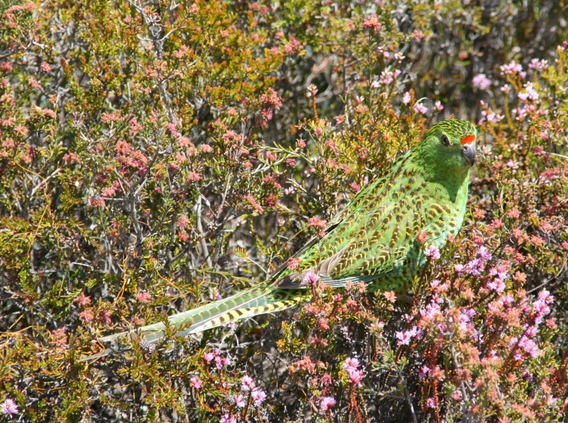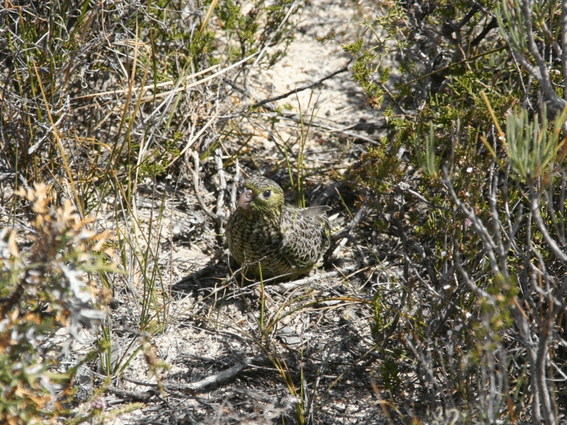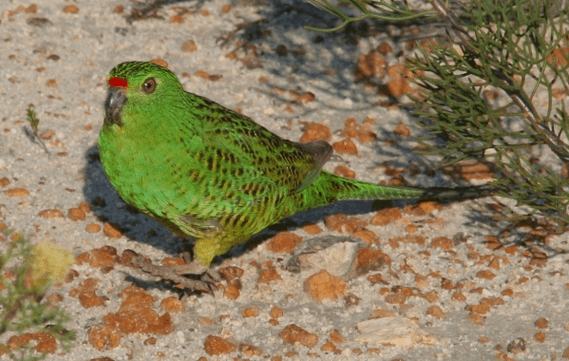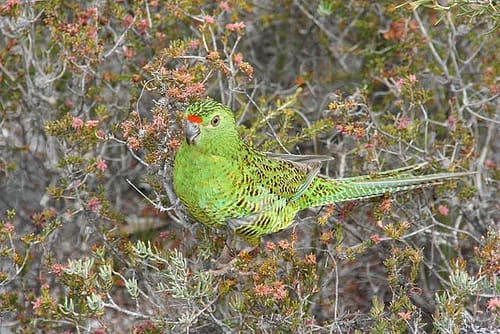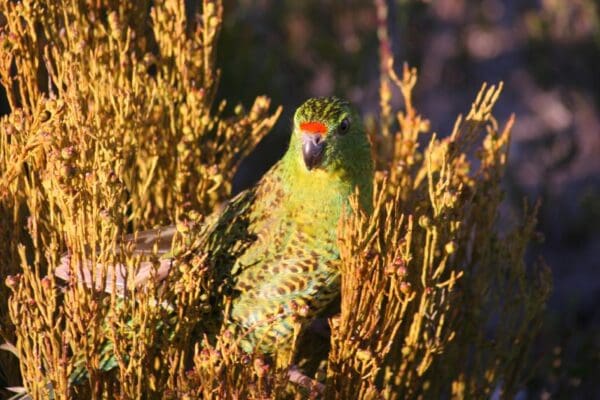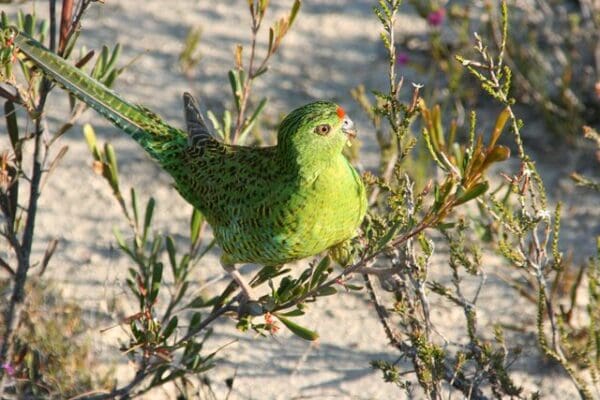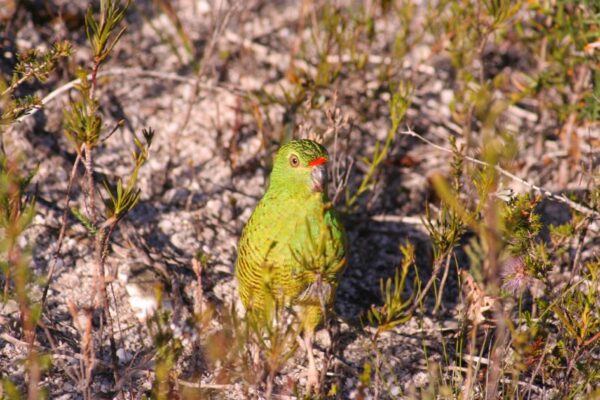Western Ground Parrot
Also known as:
Kyloring
Also known as:
Kyloring
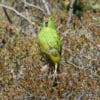
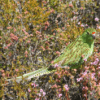
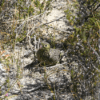
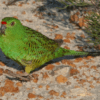
![© Brent Barrett [CC BY-SA 2.0] via Wikimedia Commons A wild Western Ground Parrot perches in brush](https://parrots.org/wp-content/uploads/2023/01/wpt_Western-Ground-Parrot_2070-100x100.jpg)
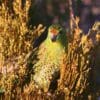
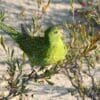
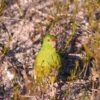
DID YOU KNOW?
The Western Ground Parrot is genetically distinct from its congener, the (Eastern) Ground Parrot.

Pezoporus

flaviventris
Size:
30 cm (11.7in)
Weight:
105-110 g (3.7-3.9 oz)
Subspecies including nominate:
one
Colour Adult:
Male-bright green dotted with black and yellow; orange/red frontal band; green cheeks, ear coverts and throat down to the breast, with black streaking on the feathers; abdomen faint green/yellow with interrupted barring; pale yellow spot on primary feathers and two spots on secondary feathers which form stripes; tail green barred with yellow and brown/black. Beak brown/grey, eye yellow. Female-as in male but with black shaft streaking to feathers of cheeks, ear coverts and throat to the breast.
Colour Juvenile:
As in adults but duller.
Call:
Three or four bell-like notes.
More Information:
Content Sources:
CITES
Birdlife Australia
Friends of the Western Ground Parrot
Cornell Lab of Ornithology/Birds of the World
Parrots of the World, Forshaw, J., 2006.
Captive Status:
—
Longevity:
—
Housing:
—
Diet:
—
Enrichment:
—
Nest Box Size:
—
Clutch Size:
3 or 4 eggs (wild).
Fledging Age:
—
Hatch Weight:
—
Peak Weight:
—
Weaning Weight:
—
World Population:
About 378 individuals, decreasing.
IUCN Red List Status:
Least Concern
CITES Listing:
Appendix I
As conspecific with P. wallicus. Australian Conservation Status (EPBC Act) Critically endangered.
Threat Summary:
Affected by loss of habitat through extensive historical vegetation clearing. Also threatened by European foxes, feral cats and increasingly severe bushfires. Australian Conservation Status (EPBC Act) Critically Endangered.
Range:
Fitzgerald River and Cape Arid National Parks on the south coast of Western Australia. Also seen in the Nuytsland Nature Reserve and Waychinnicup–Many Peaks area.
Habitat:
Birds inhabit coastal heathlands with a range of low-growing shrubs with vegetation of different ages. Prefer areas that have not been burnt for more than 40 years, but very occasionally venture into areas that are regenerating 2–3 years after a fire has moved through.
Wild Diet:
Forages on the ground for seeds and green shoots of grasses and herbs, especially buttongrass Mesomelana sphaerocephala but also Leptocarpus tenax, Anthistiria, Paspalum, Compressum and Xanthorrhoea. Seed types identified include Cyperaceae and Restionaceae, and Rutaceae, Epacridaceae and Fabaceae.
Ecology and Behaviour:
Shy and elusive. Mostly ground-dwelling, taking shelter in thick brush. Sensitive to indiscriminate burning of vegetation.
Clutch and Egg Size:
3 or 4 eggs.
Breeding Season:
July-December. Nest is a shallow scrape in soil lined with stalks or leaves, in the base of a grass tussock or bush and hidden in a chamber of vegetation.
